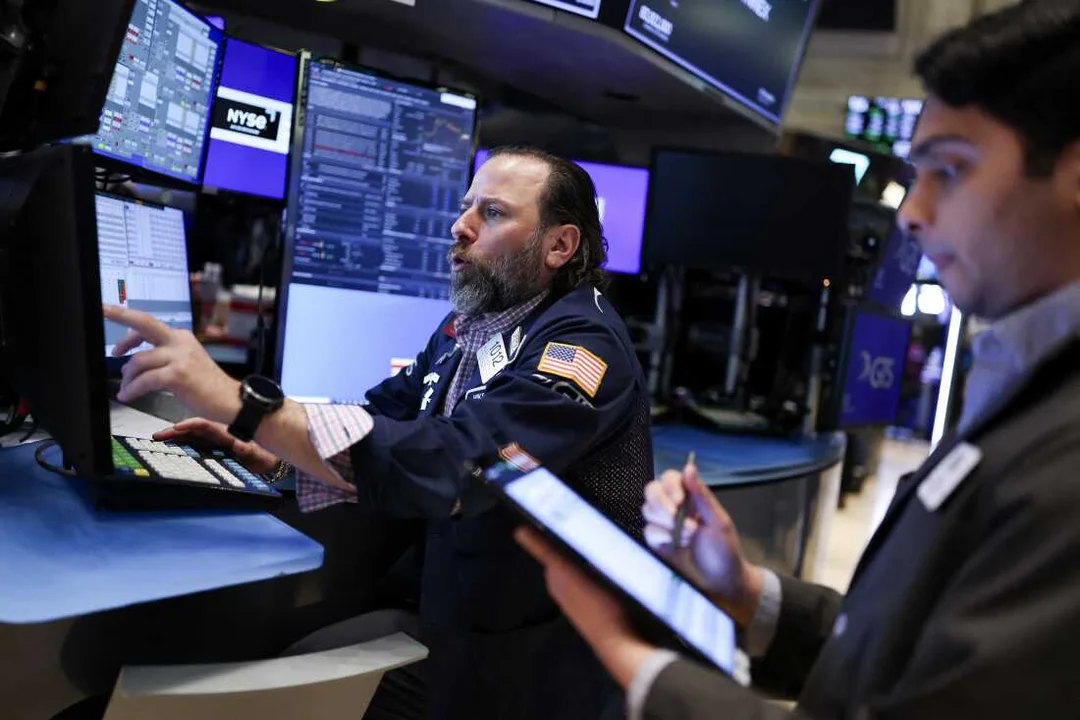
Wall Street Whiplash: From Soaring Highs To Renewed Trade War Uncertainty After Trump’s Tariff Pause
Just a day after U.S. stock markets staged one of their most remarkable rallies in history, Wall Street is once again in retreat as investors face the bruising reality that President Trump’s temporary pause on many tariffs is riddled with uncertainty, leaving global economic risks unresolved. The Dow Jones fell over 1,300 points Thursday morning—giving back almost half of Wednesday’s near 3,000-point surge—while the S&P 500 and Nasdaq both dropped more than 3% despite encouraging inflation figures. Markets are absorbing that the tariff war’s damage is far from healed—and the path forward remains turbulent.

Wednesday’s euphoric jump stemmed from Trump’s decision to suspend hefty country-specific tariffs for 90 days, offering breathing room for negotiation. Global markets responded with exuberance: Japan’s Nikkei soared over 9%, Korea’s Kospi leaped 6.6%, and London’s FTSE 100 gained more than 3%. EU leaders called it an important step to stabilize the global economy, with European Commission President Ursula von der Leyen emphasizing, “Clear, predictable conditions are essential.” The EU paused its retaliation in kind, also for 90 days. Yet Thursday’s sharp reversals expose underlying fears the trade conflict is merely paused, not resolved.

Economists warn that despite the White House’s partial tariff withdrawal, substantial levies remain. Trump’s uniform 10% tariff on nearly all imports, plus 25% penalties on autos, metals, and select Canadian and Mexican goods, endure. Most notably, Trump ratcheted up tariffs on Chinese imports past 125%, triggering China’s swift retaliation Wednesday with duties averaging 84%. Goldman Sachs lowered China’s 2025 GDP forecast, and JPMorgan continues to predict up to a 60% chance of a U.S. and global recession. “The damage isn’t all undone,” summarized UBS strategist Bhanu Baweja. In fact, “still likely to fall into recession,” echoed RSM’s chief economist Joe Brusuelas, citing compounding shocks.
While Thursday’s inflation report indicated consumer prices rose just 2.4% annually—below economists’ forecasts—it failed to reassure markets. The figures reflect the pre-tariff climate. Future readings may spike if tariffs bite into supply chains and raise costs. Bond markets, meanwhile, signal ongoing stress: the 10-year U.S. Treasury yield remains elevated at around 4.3% after wild swings earlier this week when yields shot above 4.5%, unsettling investors wary of rising borrowing costs.
Europe’s leaders, though relieved by the pause, remain wary. Ursula von der Leyen cautioned against “unpredictability and protectionism,” which “are enemies of confidence and growth.” French central banker François Villeroy de Galhau called Trump’s move “less bad news,” but warned the underlying risks persist. Billionaire investor Ray Dalio welcomed negotiation over escalation, yet hoped Trump would “do the same with China.”

China, for its part, remains combative but conditionally open. “Tariff wars and trade wars have no winners. China does not want to fight them but will not fear when they come our way,” said Foreign Ministry spokesperson Lin Jian, stressing dialogue should be “on the basis of equality, respect and mutual benefit.” Meanwhile, Asian manufacturing countries like Vietnam, Cambodia, and India welcomed more time for talks, but are bracing for tariffs’ baseline 10% bite. India has vowed to crack down on Chinese dumping during this pause.
Beyond stocks and bonds, other markets echoed caution: oil prices fell towards two-year lows, dipping below $60 per barrel domestically, and the U.S. dollar weakened against major currencies, signaling worries about America’s economic direction.
Ultimately, the dramatic market swings reveal that Trump’s tariff reprieve offers only a temporary salve on deep trade conflicts that threaten economic stability worldwide. As strategist Bhanu Baweja put it, the damage has already been “substantial”—and the risk of recession looms large. For investors and policymakers alike, the looming question is whether this truce will birth a genuine resolution, or just a prelude to renewed escalation.
Will this fragile pause open the door to lasting compromise or prove a fleeting calm before another storm? Share your views and join the debate below.
Related issues news
What is the impact of tariffs?
In a note to clients ahead of Wednesday's deadline, analysts with Wells Fargo said the tariffs would be likely to cause a u201cmodestu201d stagflationary u201cshocku201d to the U.S. economy: As prices go up, they will contribute to eroding real income growth, causing spending and overall economic activity to contract, they said.
Why are China and the US in the trade war?
An economic conflict between China and the United States has been ongoing since January 2018, when U.S. President Donald Trump began setting tariffs and other trade barriers on China with the goal of forcing it to make changes to what the U.S. says are longstanding unfair trade practices and intellectual property theft ...